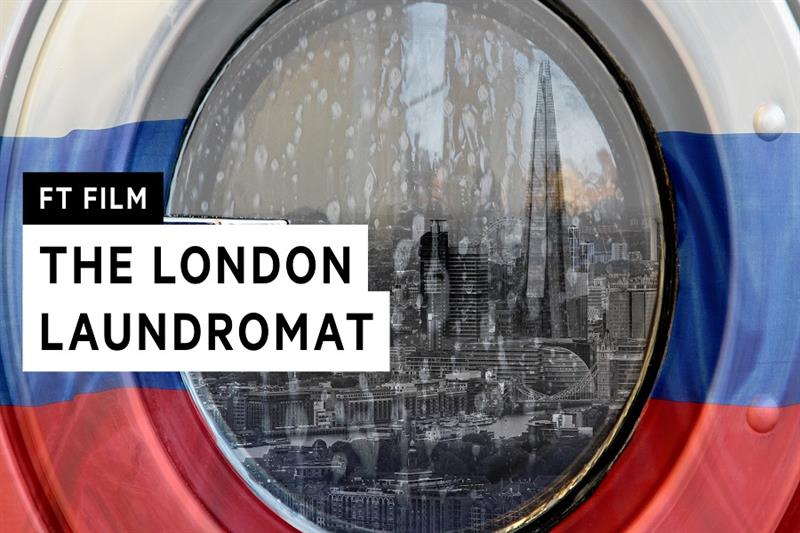How London became the dirty money capital of the world: FT report
Yasser Seddiq , Tuesday 26 Apr 2022
"There is no question that London is the dirty money capital of the world," a recent video report by The Financial Times (FT) said.

This is taking place near or in countries not far from international bodies and organisations specialised in combating money laundering, where they direct accusations against many other countries, but at the same time turn a blind eye to what is happening in London, according to Western economic sources.
The origins came with the big bang under Margaret Thatcher when she started liberalising the financial services sector, and then that carried on under the labour government with a commission on deregulation, the report said.
The Financial Times published a lengthy investigation that revealed the involvement of British banks and law firms in money laundering operations. It said that London had for decades represented an incubator for corruption and criminals from all over the world, and that it did not turn a blind eye to Russian money, but rather welcomed it.
The Financial Times report said that 31 law firms, 86 banks and 177 educational institutions in Britain accepted or moved dirty money from around the world back home. It added that the London Stock Exchange welcomed many Russian companies, turning the United Kingdom and London to their European base.
There are statements on the record from Boris Johnson, the prime minister, from when he was the mayor of London, saying that he wanted to make London a hub for Russian money. The Stock Exchange welcomed lots of Russian companies, and wanted them to make the UK and London their European base.
“Let's say you wanted to bring dirty money into the City of London and integrate it into the system, there are basically four key stages, placement, layering, integration, and defence. So let's start with bringing your money from, say, a Latvian bank account, a Cayman bank account, you want to then move that into a UK shell company,” the report said.
“You're supposed to tell the Companies House registry who the real owners, the beneficial owners, of the companies are. But in practise, it's really easy to evade those rules. And fundamentally, no one goes after companies that just lie.”
"It is essentially a Wild West of information, which is unverified, and in some cases ludicrous," the report said.
"You can put forward any name, hide your identity. There are Adolf Hitlers, and Donald Ducks, and Mickey Mouses. It is so easy to register a company on Companies House, costs £12, you can do it in minutes. And crucially, no one checks the information."
Usually, the applications are approved within 24 hours. They do not actually have the statutory power to check the information, to investigate false information, or remove it from the register.
"The next stage you want to layer to move this money around in a series of complicated financial transactions that will distance you from the money and from your source of wealth. That's where the UK banks come in. Some 86 banks have been involved in obtaining, moving corrupt wealth around the world," the report said.
The cash, by the time it arrives in London, has probably already gone through a couple of British overseas territories like the British Virgin Islands.
"Step three is you want to integrate your wealth into the UK system. You want to buy assets, including UK property. Lawyers, real estate agents are on hand to help you do that," the report said.
The report detailed that one can own UK property through a shell company, even an offshore shell company.
"And if you do own it through an offshore shell company, you don't have to say who really owns that property."
Lawyers are on hand to advise on these complicated transactions, which creates an opaque ownership structure of some of the most valuable UK homes. Roughly 84,000 homes in the UK are owned anonymously. Some £6.7 billion of UK property has been bought with suspicious wealth, the report said.
One of the attractions of being in London is the network of lawyers, accountants, oligarchs, and kleptocrats, according to the report. English law provides a stamp of legitimacy.
"We've identified 81 law firms, 86 UK banks, and surprisingly 177 UK education institutions that have accepted or moved dirty money from around the world. Russians own our newspapers, their children are in the elite public schools. Their properties are in Mayfair."
The value of money laundering every year is between £23 billion and £57 billion, in Britain; one of the largest economies in the world.
Veteran Labour MP Margaret Hodge said that what is "very worrying is that the government has held extensive consultations on this issue, and had a bill literally waiting on the shelves for years, however, it left many holes in it. We closed some of them, and we were unable to close others. There are many points in it that we cannot achieve."
"I feel uncomfortable that it took the tragedy of Ukraine to get the government to act on the issue of dirty money," she added as quoted by Independent Arabia.
The same newspaper quoted Joe Powell, the co-founder of the Kensington Against Dirty Money campaign as he asserted that ministers have to act now against the illicit wealth stored in the United Kingdom.
No comments:
Post a Comment